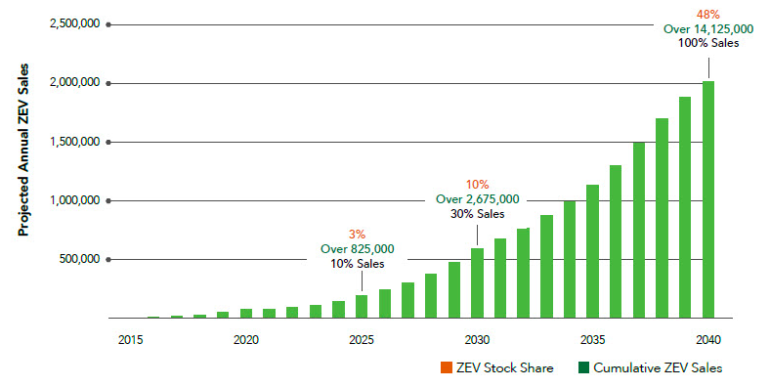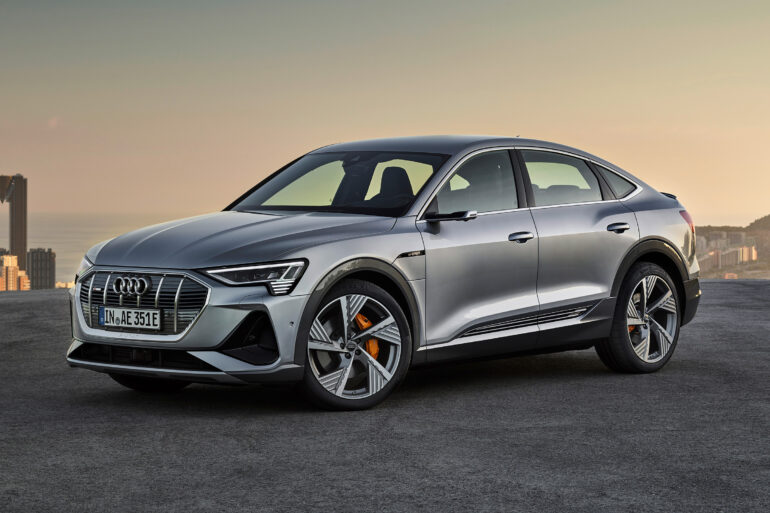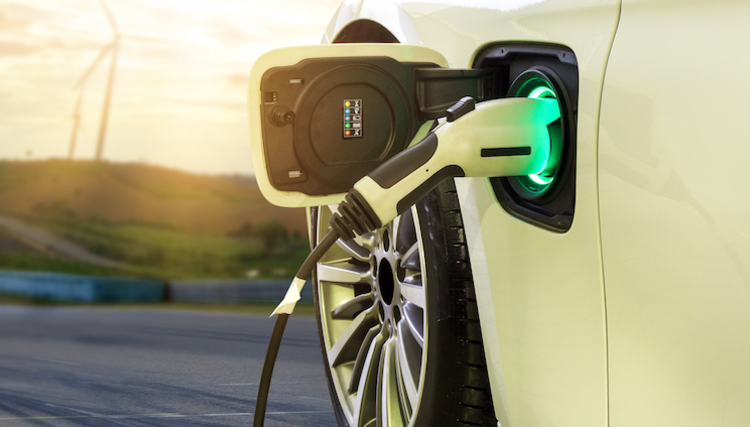
Canada’s new promise to cut greenhouse gas emissions by at least 40 per cent by 2030 has people questioning if this ambitious plan is achievable.
To reach this emissions target, Canada must begin by favouring cleaner energy sources, and for consumers this means more zero-emission vehicles (ZEVs).
Transport Canada said in a report it believes one way the country can reduce the amount of transportation-related greenhouse gas emissions is to get more ZEVs on the road.
“To move to decarbonization of the transportation sector, we need significantly more ZEVs on the road,” says the report by Transport Canada.
Greenhouse gas emissions in Canada slightly increased in 2019, which was also the first year the national carbon pricing mechanism was in place — according to Environment and Climate Change Canada.
This increase is about 0.2 per cent higher than projections made in 2018, although there has been a drop seen in 2020, presumably due to less cars on the road because of the current pandemic.
Christina Hoicka, a professor from York University’s sustainable energy department, said Canada’s climate response needs to be clearer.
“Canadians are among one of the highest energy users and greenhouse gas emitters in the world,” Hoicka said. “The Canadian Governments plan to emphasize emission reductions requires quick response strategies that will provide both social and economic benefits.”
She said 80 per cent of Canada’s greenhouse gas emissions are energy related, and to reduce this the government must focus on lowering non-fossil fuel energy costs.
Hoicka said ZEVs would drastically lower emissions, but there must also be more focus on buildings using renewable energy.
“Focusing on buildings to have more renewable energy sources is an important method to fight climate change, and if more charging stations are needed for electric vehicles then they will be powered through sustainable energy,” Hoicka said.
Canada is currently funding up to $76 million in the Electric Vehicle Infrastructure Demonstration (EVID) program to support innovative charging stations and accelerate the market for ZEVs.
Natural Resources Canada states ZEVs currently have a technology readiness level (TRL) of five, meaning that the basic technological factors for widespread use are incorporated within a realistic timeline and environment.
The report says the end goal of the EVID program is to have the TRL be at the level eight, which will confirm that they are proven to work in a real-world operating environment.

A recent parliamentary report questions whether or not Canada should mandate the auto industry to sell electric vehicles.
Over the past 10 years, electric vehicles have become increasingly common, accounting for 30 per cent of all vehicle stock in Canada.
Statistics Canada reports that in 2020, 1.8 per cent of new vehicles registered were ZEVs, up 1.2 per cent from the previous year.
In Toronto alone, 2.4 per cent of all new vehicles register were ZEVs, compared to 1.9 per cent in Ottawa.
This number is low due to the inadequate availability of electric and hybrid vehicles to purchase, and also the lack of experience consumers have with the technology.
Chris VanderWel, E-Tron specialist with Audi, said that sales on electric vehicles are increasing, but consumers are still unfamiliar with the concept.
“We have a small line-up of electric vehicles at the moment, but in 2022 there are more on the way to appeal to the rising demand of fully electric and hybrid cars,” VanderWel said.
Audi’s new E-Tron GT RS model is hitting Canadian roads in July, although it is already sold in Europe.

“I always have the most questions when it comes to our E-Tron. Their inquiries revolve around reliability compared to normal gas cars, quantity of charging stations, and their cost-efficiency,” he said.
VanderWel thinks because most people don’t have the experience with electric cars, they trust them less.
A survey conducted by J.D. Power reports that 59 per cent of new-vehicle shoppers fall into the somewhat likely, or somewhat unlikely category for purchasing an electric vehicle.
This number opens up a significant window for future ZEV purchases, and with other car manufacturers bringing more electric vehicles to Canada it can greatly attribute to Canada’s plan to cut down greenhouse gas emissions.

